Royal History's Biggest Fibs with Lucy Worsley - Season 2

Season 2

Episodes
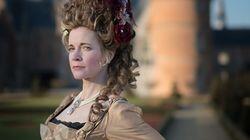
French Revolution
'Let them eat cake!' is one of the most famous phrases of history and one that everyone associates with the French Revolution. But did Marie Antoinette – the queen of France - really say it? In this film, Lucy Worsley explores some of the myths and fibs swirling around the Revolution of 1789 and the uprising that brought down the French royal family. This violent revolution became the blueprint of many future revolutions across the world. But what happened during this turbulent period is open to historical manipulation and interpretation.
Lucy discovers that Marie Antoinette never said, 'Let them eat cake'. This was a fib used by later historians to help explain why the revolution happened. Historian Michael Rapport explains how the revolution was not started by starving peasants, as many assume but was, in fact, sparked by a group of lawyers and property owners. Along the way, Lucy finds out that Maximilien Robespierre wasn't simply a bloodthirsty revolutionary who relished violence and wanted to execute everyone who disagreed with him. In his earlier years, he stood against the death penalty and slavery and fought for the rights of France's Jewish population. And the guillotine was invented by the revolutionaries not as a brutal punishment but as a more egalitarian and humanitarian form of execution.
Depending on your politics and your nationality, Lucy finds out that everyone has a very different take on the French Revolution.
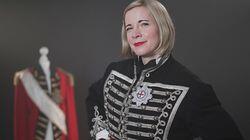
George IV and the Regency
Lucy Worsley finds the fibs behind the facade of Georgian elegance and discovers how the story of Regency Britain – from Waterloo to Peterloo – was spun to avoid revolution.
We think of the Regency as genteel and well-ordered: beautiful buildings, Jane Austen's romances, and red-coated officers defeating Napoleon at Waterloo. Lucy Worsley digs behind the facade of Georgian elegance to reveal the fibs that helped conceal a darker side to the Regency and suppress rebellion in an age of revolution.
This was the end of the Georgian era when a mentally ill King George III was forced to hand power to his extravagant son – the prince regent and future King George IV. Both kings lived in the shadow of the French Revolution and the rise of Napoleon.
To make matters worse for the royals, British radicals were demanding political reform. To stop rebellion, monarchy and government relied on spin, secrets, and lies. Lucy reveals how an international victory at Waterloo became distinctly British, why the Peterloo Massacre was airbrushed out of history, and how Scotland was dressed up in tartan to support the union.
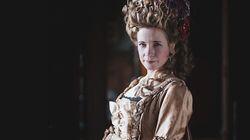
Russian Revolution
We think we know the story of the Russian revolution - in October 1917, the Bolsheviks rose up, swept the tsar from power, and communism was born. In this film, Lucy explores the myths and fibs that swirl around the dramatic events of 1917. She finds it was really a group of women workers who kick-started the Russian Revolution in February 1917. At the time, the Bolsheviks tried to stop it, and Lenin, the radical leader of the Bolsheviks, wasn't even in the country.
Lucy discovers that the tsar was forced to abdicate long before the Bolsheviks took control. And she finds out how King George V betrayed his cousin by opposing the British government's offer of asylum to the tsar and his family. This was kept secret for decades.
Along the way, Lucy reveals how the Bolsheviks used films and books to big up the October revolution while belittling the February revolution as irrelevant and bourgeois. And when Lenin died in 1924, Stalin lied his way to the top - he repressed Lenin's last wishes and faked paintings and photographs to support his claim to be Lenin's chosen successor.
Recently Updated Shows
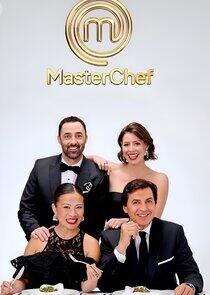
MasterChef Australia
MasterChef Australia is an Australian competitive cooking game show consisting of a group of hopeful contestants that cook and present food to judges in order to win the title of MasterChef Australia.
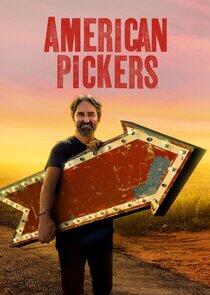
American Pickers
This isn't your grandmother's antiquing. The American Pickers are on a mission to recycle America, even if it means diving into countless piles of grimy junk or getting chased off a gun-wielding homeowner's land. Hitting back roads from coast to coast, the Pickers earn a living by restoring forgotten relics to their former glory, transforming one person's trash into another's treasure. The show follows the team as they scour the country for hidden gems in junkyards, basements, garages and barns, meeting quirky characters and hearing their amazing stories. If you think the antique business is all about upscale boutiques and buttoned-up dealers, this show may change your mind – and teach you a thing or two about American history along the way.

Lucky
A young woman who left behind the life of crime she was raised in years ago must now embrace her darker, criminal side one final time in a desperate attempt to escape her past.

Stick
Pryce Cahill is an over-the-hill, ex-pro golfer whose career was derailed prematurely 20 years ago. After the collapse of his marriage and getting fired from his job at an Indiana sporting goods store, Pryce hedges his bets, and future, entirely on a troubled 17-year-old golf phenom named Santi. Stick is a heartfelt, feel-good comedy about a found family and their relationships set within the world of golf as it's never been shown before.

Will Trent
In Will Trent Special Agent Will Trent of the Georgia Bureau of Investigations was abandoned at birth and endured a harsh coming-of-age in Atlanta's overwhelmed foster care system. But now, determined to use his unique point of view to make sure no one is abandoned like he was, Trent has the highest clearance rate in the GBI.